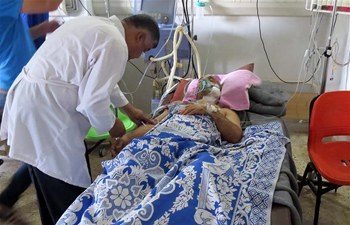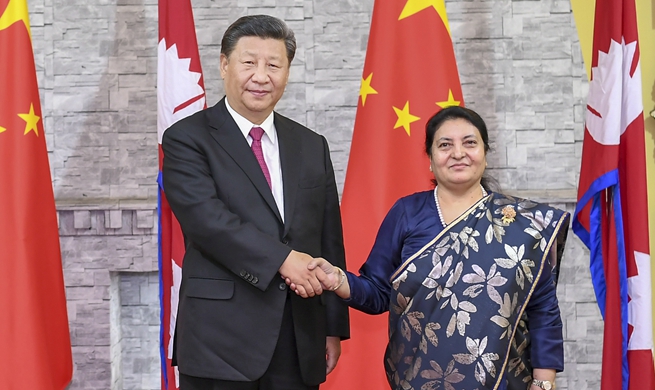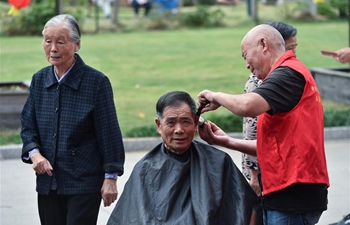CHICAGO, Oct. 10 (Xinhua) -- A study from Washington University in St. Louis has found that brain immune cells called microglia, which are activated as the messy tangles of a protein called tau accumulate, form the crucial link between protein clumping and brain damage, and eliminating such cells sharply reduces tau-linked brain damage in the mice.
To understand the role of microglial cells in tau-driven neurodegeneration, the researchers studied genetically modified mice that carry a mutant form of human tau that easily clumps together. Typically, such mice start developing tau tangles at around 6 months of age and exhibiting signs of neurological damage by 9 months.
Then, the researchers turned their attention to the gene APOE. Everyone carries some version of APOE, but people who carry the APOE4 variant have up to 12 times the risk of developing Alzheimer's disease compared with those who carry lower-risk variants. The researchers genetically modified the mice to carry the human APOE4 variant or no APOE gene.
For three months, starting when the mice were 6 months of age, the researchers fed some mice a compound to deplete microglia in their brains. Other mice were given a placebo for comparison.
The brains of mice with tau tangles and the high-risk genetic variant were severely shrunken and damaged by nine and half months of age, as long as microglia was also present. If microglia had been eliminated by the compound, the mice's brains looked essentially normal and healthy with less evidence of harmful forms of tau despite the presence of the risky form of APOE.
Further, mice with microglia and mutant human tau but no APOE also had minimal brain damage and fewer signs of damaging tau tangles. Additional experiments showed that microglia needs APOE to become activated. Microglia that has not been activated do not destroy brain tissue or promote the development of harmful forms of tau.
"Microglia drive neurodegeneration, probably through inflammation-induced neuronal death," said first author and postdoctoral researcher Yang Shi. "But even if that's the case, if you don't have microglia, or you have microglia but they can't be activated, harmful forms of tau do not progress to an advanced stage, and you don't get neurological damage."
The findings indicate that microglia are the linchpin of the neurodegenerative process, and an appealing target of efforts to prevent cognitive decline in Alzheimer's disease, chronic traumatic encephalopathy and other neurodegenerative diseases.
"If you could target microglia in some specific way and prevent them from causing damage, I think that would be a really important, strategic, novel way to develop a treatment," said senior author David Holtzman, professor and head of the Department of Neurology at the university.
The research findings were published Thursday in the Journal of Experimental Medicine.

















